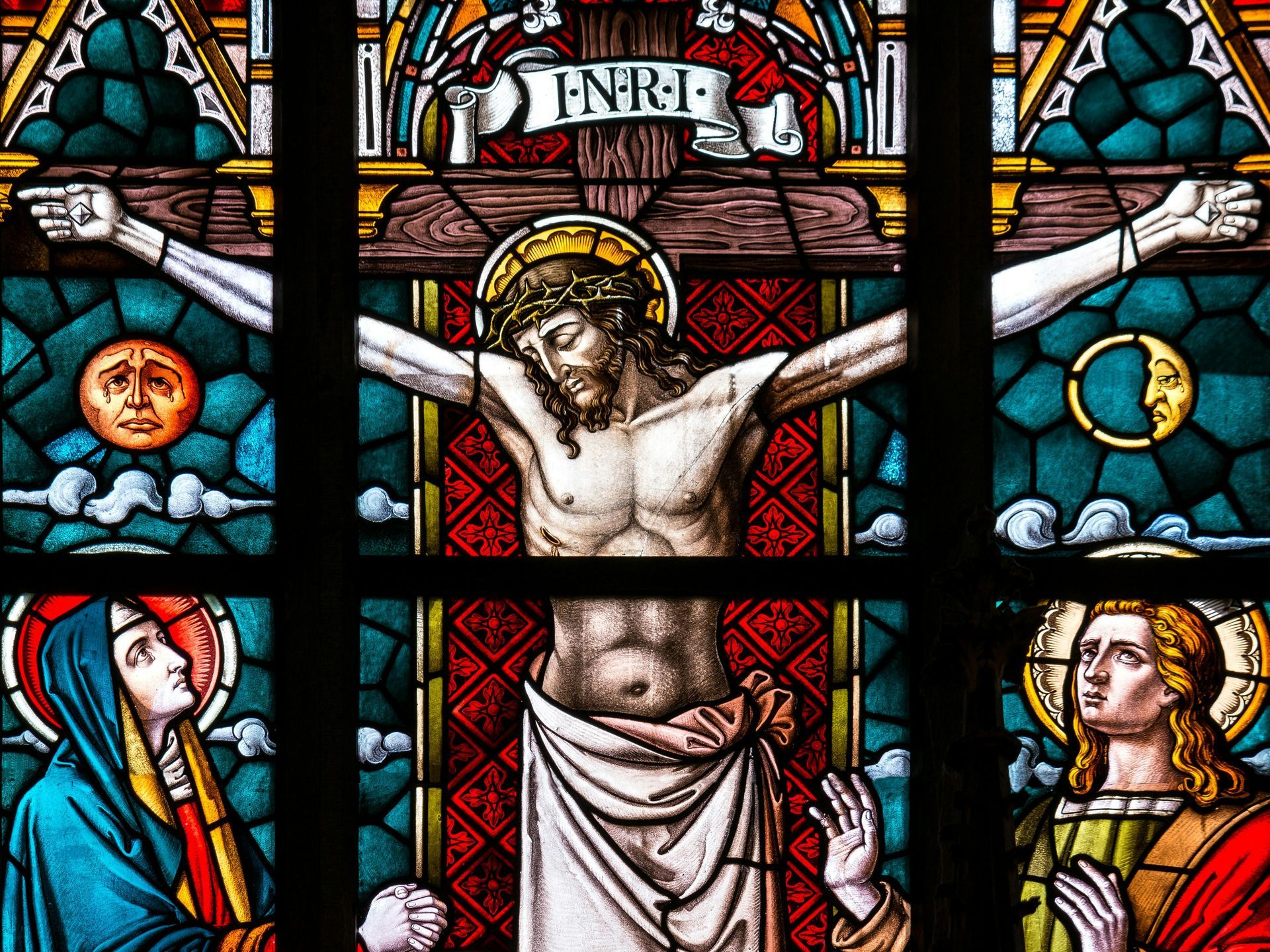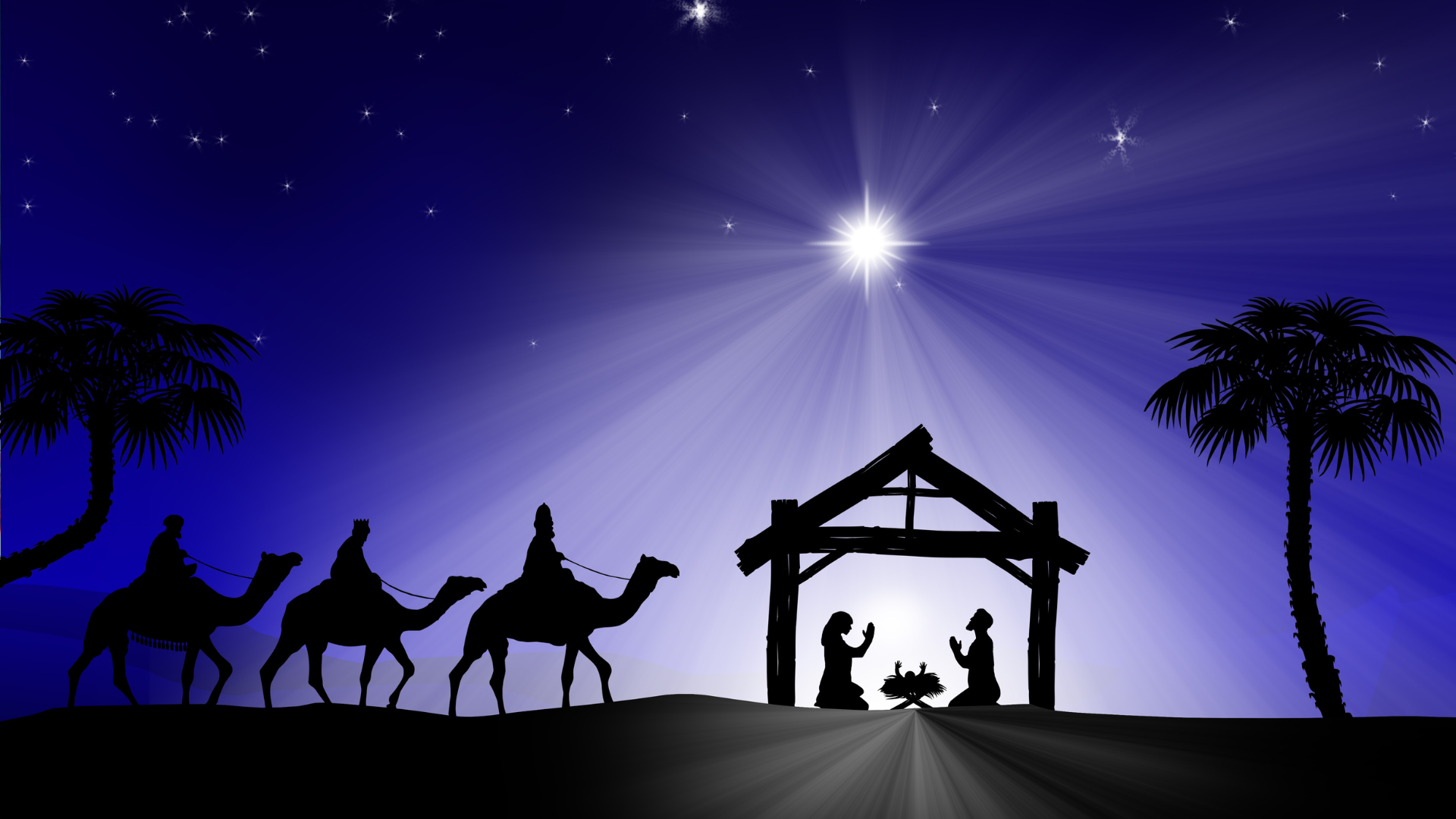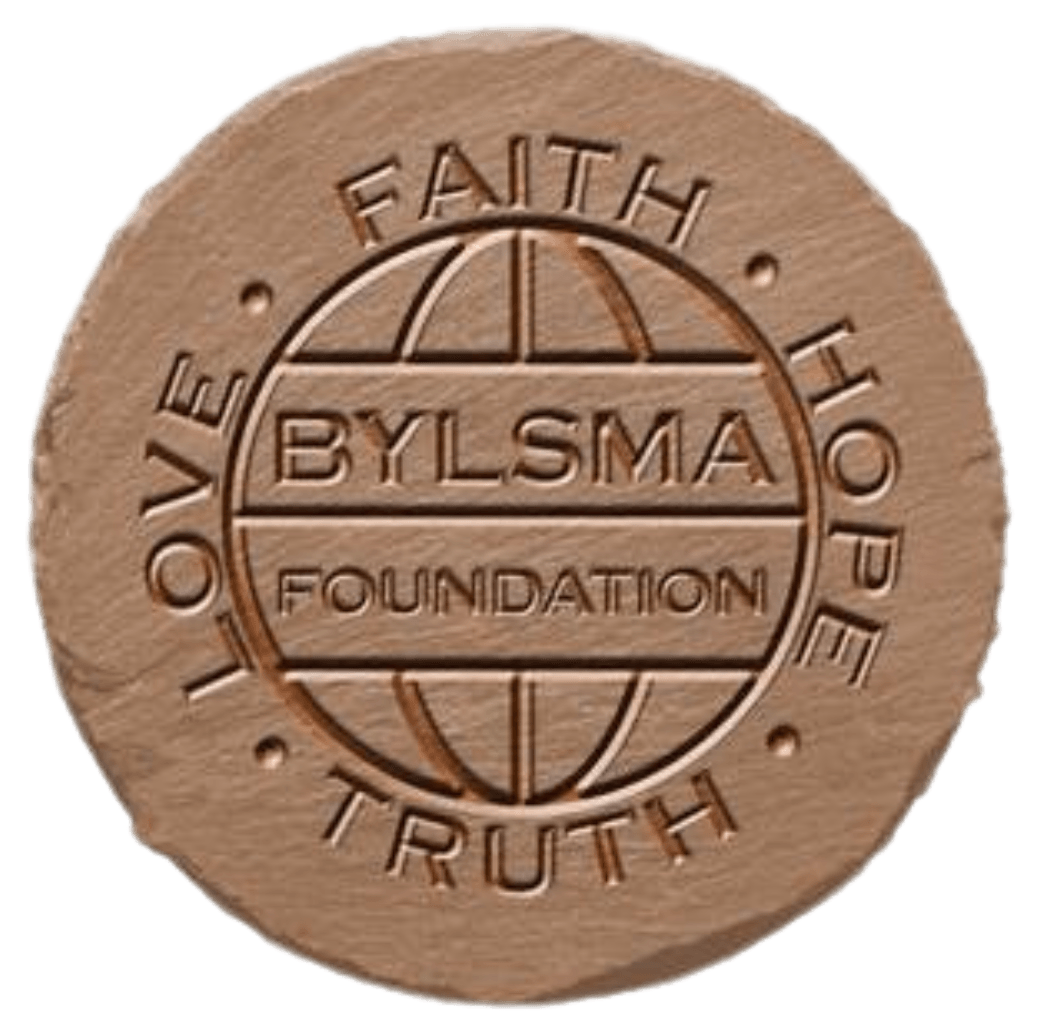Bylsma’s Bible Blogs
# 18 The Saving Love of God

The Essential Message of the Bible
The Holy Bible is a collection of ancient documents that tell the story of how the God of the universe was revealed to people, loved them, and became a human to help everybody understand what God is like. The Bible describes a God who wants a relationship with all people, without regard to their background, beliefs, or actions. This blog summarizes the entire story of the Bible and how people can know God. A few references to specific parts of the Bible are included in parentheses.
A Unique God Created the World
Before time began, a God with unusual qualities existed throughout the universe and will live forever. The one true God has multiple forms and was all-powerful, existed everywhere, and knew everything. God also has a moral dimension, knowing the difference between good and evil. In this sense, God has a “personality” that is always loving, forgiving, and patient, always helpful, merciful, and kind.
God first created angels to help influence events in the universe, then light and an amazing physical world with billions of stars and planets. On one planet, God created waters and dry lands that eventually produced living things.
God then made the world’s most important and unique creation, human beings. God wanted to interact with them and gave them some of the same qualities of God: they were creative, aware of their surroundings, able to relate to others, could tell the difference between good and evil, could love others without any conditions, and were willing to put the interests of others before their own.
The two human “images of God,” male and female, had a soul that would live forever. They were to join together and produce children so the human race would grow. God gave them the entire planet to enjoy. They were to care for the planet and obey certain rules so they would live with each other in peace.
Evil Entered the World
Everything was good, but a group of angels led by Satan wanted God’s power for themselves and rebelled. This caused evil to enter the universe, which revealed itself in selfishness, deception, corruption, and injustice. Evil angels still exist in the world, and all that is good exists alongside evil forces that fight against what is good.
People were given the freedom to make their own decisions, and evil forces caused the first family, Adam and Eve, to disobey God’s commands. This disobedience created an invisible disease called “sin” which broke the relationship between God and people. This sinful condition caused injustice and hate to expand in the world. An invisible conflict now constantly takes place throughout the world between the spiritual forces of good and light and the forces of evil and darkness.
God Chose the Israelites to Show the World How to Live
God (also called Lord) started saving people from their sinful ways by making an agreement with a specific tribe of people. God promised to bless them so they would bless others (Genesis 22:16–18). To get this blessing, the tribe had to be faithful and obedient to God and live in ways that showed love and justice for others.
Abraham was the first leader of this tribe. He moved his family to Canaan, east of the Mediterranean Sea (Palestine). One of his grandsons was named Jacob, who was later called Israel. Jacob had many children, and the extended family was known as the Israelites.
The tribe’s leaders were given the same promise God gave Abraham – God would bless them if they honored God and lived in a holy and just manner. They were to model how people should live together on earth – honoring God, loving others, and providing justice within the community. If they failed to live this way but confessed their sin, their sins would be forgiven by God, which maintained their relationship.
The tribe moved to Egypt during a famine and thrived there. But the Egyptians later made them slaves. After suffering there for several centuries, God gave unusual powers to an Israelite man, Moses, to deliver the tribe from slavery. God’s powers were shown in many ways to the Egyptians, and the Israelites were saved in an unusual way – they put the blood of a perfect lamb on their door frames so the angel of death would “passover” their homes. When the first born of all the Egyptian families died in the night, the Israelites were ordered to leave.
Moses led everybody on a long journey through the wilderness back to Canaan. God provided food, water, protection, and directions during the trip. God also gave Moses many commands about how the Israelites should worship God and live with each other. People were to love God and their neighbors as themselves (Exodus 20; Deuteronomy 5-6; Leviticus 19:18). Laws were established to provide justice and take care of those in need.
But the people often disobeyed the commands and laws and failed to honor God. When they disobeyed, they made sacrifices to show they were sorry for their sins. Some sacrifices involved killing a high-quality animal, spilling its blood that symbolized life.
Eventually the Israelites entered Canaan and defeated the armies of those living in the region. God had saved the Israelites and blessed them, and now they had a home where three continents merged, the perfect place to show the world how to live on earth.
The Israelites Fail to Follow God and Provide Justice
Although God continued blessing the Israelites and forgave them when they repented, they usually ignored God’s laws and often honored other gods that were worshiped by others in Canaan. A few Israelite men and women leaders honored God and provided justice in the land, but most of the time, the tribe was wicked and fought among themselves. One part of the tribe lived in Judah, a large area in southern Canaan. This led others to call the tribe Jews.
God chose several men to be king of the Israelites, but conflicts within the tribe divided it into two kingdoms. A few kings honored God, but when life got better because of God’s blessings, the people became complacent and wicked again. Many prophets spoke for God and told the Jewish leaders and people to admit their sins, repent, and honor God again, but the prophets were usually ignored, and some were killed. They told everybody they would lose God’s protection and be captured by other nations if they didn’t stop sinning. It wasn’t enough for people to conduct ceremonies of worship – actions to love others and treat everybody fairly had to occur as well. Through Isaiah, a prophet who wrote to people in both kingdoms, God said:
Do you think I want all these sacrifices and offerings? When you raise your hands in prayer, I don’t see you; when you pray to me, I’m not listening. Do you expect me to listen to your prayers and bless you when you don’t treat others fairly? Stop doing evil! You have not been fair to others, you have not helped those who suffer, and you have not supported orphans and widows. (Isaiah 1:11–17; 58:1–11)
Eventually, because of their wickedness, both kingdoms were conquered by foreign empires, and the Israelites were led away as slaves. God had been faithful to the Israelites, being patient with them and forgiving them, but the Jews were constantly unfaithful to God. Their agreement to honor each other had resulted in a “divorce.” Israel was like God’s vineyard, but it failed to produce the desired fruit, so the vineyard was destroyed. Nearly all the Jews were scattered across the region of southwest Asia, far from Canaan.
Hope for the Future
Isaiah and other prophets predicted a future king would lead a worldwide kingdom that will last forever. Evil would be destroyed and God’s vineyard would be fruitful again. Isaiah wrote about a righteous leader to come – Immanuel (“God with us”), also known as the Messiah (Christ in Greek) – who would be “Mighty God” in human form and rule the entire world (Isaiah 7:14; 9:6). The Jews looked forward to when the Messiah would save them from their oppressors. However, the Messiah was predicted to come as a servant, not a military king, and his kingdom would include all people, not just the Jews.
After many centuries, the Messiah finally arrived as a baby. A virgin gave birth to a boy named Jesus in a humble barn, and God was the father. Jesus was the visible expression of the invisible God (Colossians 1:15; Hebrews 1:2). Seeing and hearing God in human form was the best way for people to understand who God is. The details of his life met all the prophets’ predictions about who the Messiah would be, but the Jews expected the Messiah to be a military conqueror, so they didn’t recognize him as the Messiah when he grew up.
Jesus led a sinless life and had unusual powers, but he only used them to help others. He modeled and taught about serving and forgiving others, unconditional and sacrificial love, and extreme generosity. He spoke mainly to the Jews – they were God’s people but had misunderstood what God tried to teach them. Jesus’s actions and teachings also showed God’s acceptance of all people, not just the Jews. His focus on those who were disadvantaged in some way showed a different set of priorities, and his refusal to conform to strict religious rules showed a new way of thinking. Love was the highest priority, not obeying rules. Loving others heals people’s bodies, minds, and spirits, and sacrificial love and forgiveness bring peace in the human heart and harmony in relationships with others.
Jesus Becomes the Final Sacrifice
Jesus’s teachings threatened Jewish religious traditions, and religious leaders saw him as a false prophet who misled the Jews. When Jesus became very popular, the leaders plotted to have him killed by the Romans who occupied the region. Jesus was captured by the leaders in Jerusalem and sent to the Romans to be killed. He was nailed to a cross and died.
His death became the last blood sacrifice of a perfect lamb. The sacrifice was similar to the blood of a perfect lamb sacrificed by the Israelites during the Passover in Egypt to save them from death. It was similar to the blood sacrifices Jews made using unblemished animals to reestablish a relationship with God. It had always been God’s plan to have Jesus be the last sacrifice – the periodic shedding of animal blood could not take away sins (Hebrews 10:4). Only God could forgive sin. Jesus knew this and didn’t resist being killed.
Jesus Conquers Death
Jesus was buried on a Friday afternoon, but early Sunday morning, he came back to life – death could not stop the God of the universe. While his sacrifice saved people, his resurrection from the dead means those who follow him will defeat death and live forever with God in heaven.
Jesus lived 40 more days and met with hundreds of people. He explained why his death and resurrection had to occur. He told his followers to tell people all over the world about him. He said God’s spirit would enter them and provide moral guidance to their minds, wisdom about how to live, power and authority over evil spirits, and energy to persevere during difficult times. Then Jesus rose into the sky and disappeared.
A few days later, the Spirit was unleashed among the believers and gave them new powers, including the ability to speak the truth boldly in other languages, cast out demons, and heal the sick. They spread out across the region and beyond, telling people about the saving love of Jesus’s sacrifice and resurrection (the good news, or “gospel”), and inviting them to follow him and join their movement. The Spirit helped and comforted them as they traveled (Romans 8:26–27). The number of people who decided to follow Jesus grew rapidly.
A new more inclusive agreement had been established – everybody is loved and accepted by God, not just the Jews. The first agreement was exclusively for the Jews, but it became obsolete when the new, more inclusive agreement was made (Hebrews 8). Everybody can now be saved from death – it doesn’t matter what a person’s birthplace, tribe, race, age, gender, actions, or beliefs may be. Moreover, blood sacrifices are no longer needed for people to have a relationship with God – everybody is invited to meet and understand God. This is very good news for the whole world!
Those who follow Jesus, the Christ, are known as “Christians,” and collectively, they are known as the “church.” The church is the “body of Christ” and a “new Israel,” and is called to bless the entire world, the same calling the Israelites had. This “new nation” of God’s people are to live a certain way – loving and following God, loving and forgiving others (including their enemies), and promoting peace and justice in the world. These actions are what the world needs for people to thrive in today’s world.
Jesus said he will return to earth some day and eliminate Satan and evil forever. But until that day comes, good and evil coexist on earth. So life is often unpredictable and unfair – good people suffer and evil people thrive. But God can use evil to produce good (Romans 8:28). His followers are to persevere with endurance when they are persecuted because of their faith – they have hope and confidence in knowing good days will come. They have inner peace and the moral purpose to serve others. Jesus will ultimately judge all people, condemning many to hell and inviting his followers into heaven.
Following Jesus
The sacrifice of Jesus, the perfect lamb of God, saves all people from death forever. Death loses its sting when we have this assurance (1 Corinthians 15:54–57; Hosea 13:14). People of the whole world are invited to have a relationship with God. Some believe God is impersonal, aloof, and unknowable, but the one true God described in the Bible is the opposite – personal, near, and knowable. Jesus is like a shepherd who actively looks for lost sheep to bring them into the flock of believers. He pursues us and wants us to know him.
To know Jesus is to know God. He is the only one who provides people access to heaven. God’s forgiving and loving nature gives everybody hope that they can have a meaningful life and enter heaven after they die. To have a relationship with God and enjoy its benefits, people need to decide if they want to have that relationship. Gaining access to eternal life is free – there’s nothing we can do to earn it, and we certainly don’t deserve it (it’s God’s gift to us).
Jesus stands at the door of our lives and knocks. He gives each person the option to reject him or let him into their life. Those who do start communicating with God in different ways. God protects believers from evil and guides them on the right path when they are in danger as he loves them unconditionally.
Those who decide to follow Jesus and his teaching turn away from their old ways of living and enter a new phase of life – they are “born again” (2 Corinthians 5:17). They symbolically show this internal change in allegiance, from self to God, by being baptized with water, leaving death and their old ways behind and starting a new life. They seek to be more loving, for God is love (1 John 4:7–18).
God’s free gift of eternal life is a sign of God’s “grace,” an undeserved blessing to those who sin. Paul, a Jewish leader who became a Christian and traveled to other countries to share the good news about Jesus, explained it this way to believers in Ephesus:
Our sinful human nature makes us deserve death, but because of God’s great mercy and love for us, God made us alive with Christ. We were all dead in our sins, but God’s grace saved us... You have been saved by God’s grace because of your faith. (Ephesians 2:3–5,8)
Those who decide to follow Jesus enter an exciting but difficult life. Their purpose for living changes, and they represent God’s kingdom to others on earth (they are “ambassadors” for heaven). Their values and priorities will conflict with those of the local culture. They are not to do what an ungodly world wants them to do, but they must love and serve others while living in world. Individually and as a group, Christians are to be examples of God’s love and forgiveness, living humbly as they promote peace and justice. When we know we are loved and forgiven just as we are, we gain emotional and spiritual freedom that enables us to love and serve others in the ways Jesus did when he was on earth.
Christians live in a world where many bad things cause pain, suffering, and death. Evil forces affect many aspects of life and try to disrupt the forces of good in individuals and society. Christians are soldiers of light in a battle against the invisible forces of evil, providing love, hope, and truth to others. Evil forces often focus their efforts on Christians – they try to reduce God’s influence in the world by creating internal divisions and distractions within the church and by influencing Christians to embrace aspects of the local culture that don’t reflect Jesus’s character and priorities.
Making a commitment to put one’s faith in Jesus and follow his teachings is just the beginning of the process. It takes time and discipline to become a mature Christian. One must always be learning about what God wants believers to become and do. The Spirit gives different “gifts” to Christians so they can support the church and serve others. Over time, the life of a faithful Christian is transformed to be more like Christ. Spiritual maturity is shown by the “fruits” of the Spirit: love, joy, peace, patience, kindness, goodness, faithfulness, gentleness, and self-control (Galatians 5:22–23). Mature Christians are gracious, humble, trustworthy, merciful, compassionate, and just, traits that always benefit the whole world.
Summary
God first promised to bless Abraham and the Israelites so they could be a blessing to others. They were to show the world what a relationship with God and a just society looked like. But they were often unfaithful to God, disobeying the commands they received, and not loving others. They were to make sacrifices to show their sorrow for their sins, but due to their continued disobedience, God removed the blessings. A few faithful Jews waited for the day when a king (Messiah) would come and save them.
God came to earth in the person of Jesus. He provided people with a concrete example of who God is – he demonstrated God’s character and modeled how God’s people should live. God is love, and he taught that love was the primary trait of God’s people. Life was not to be lived according to rigid rules, but according to the rule of love. The first agreement showed that it’s impossible for people to have a close relationship with an invisible God being by following rules and making sacrifices. Jesus became the final sacrifice for all people and erased the natural consequence of sin, being separated from God. His death saves all people from their sins, not just the Jews, and allows all people to come to God blameless and clean. His resurrection conquered sin, death, and Satan. Jesus paid the price for us to be reconciled to God. There is nothing we must do, other than follow Jesus, to be saved from permanent death. Believers are to tell others about Jesus and to reflect the values of God’s kingdom to those living in earthly kingdoms.
* * * * *
Bylsma’s Bible Blogs











